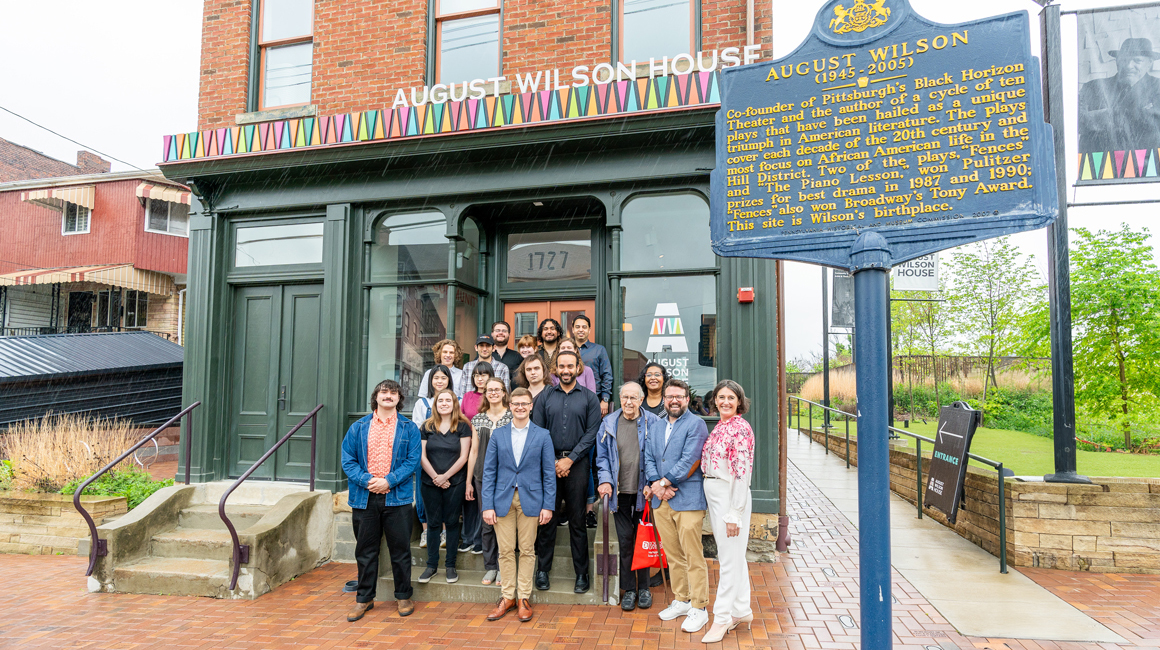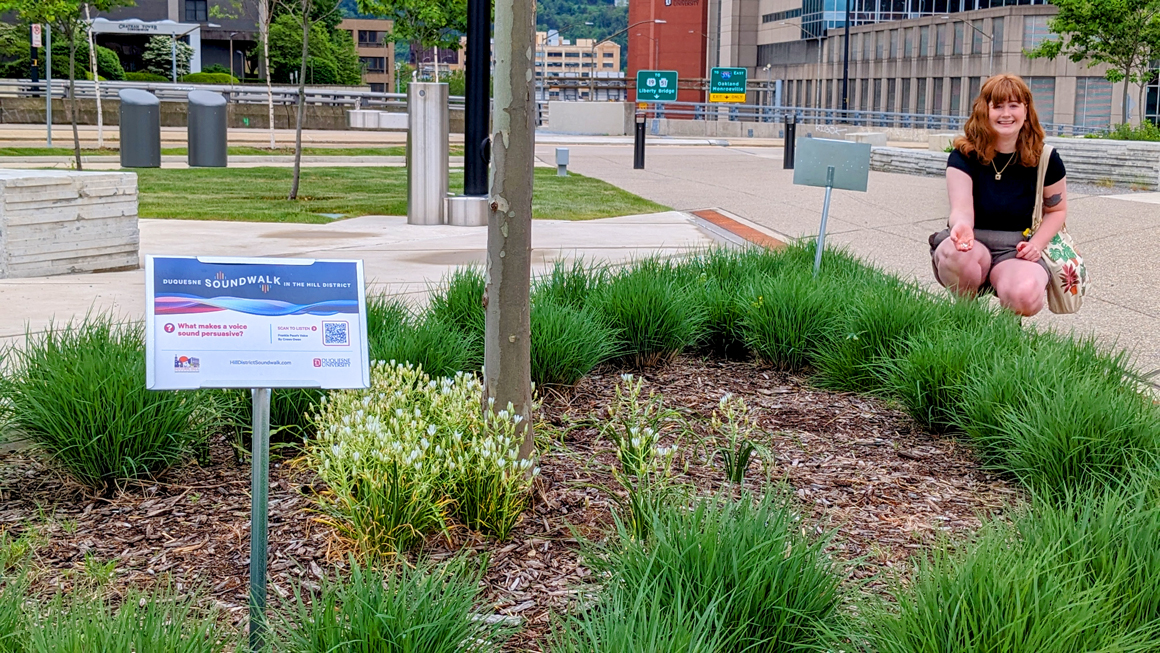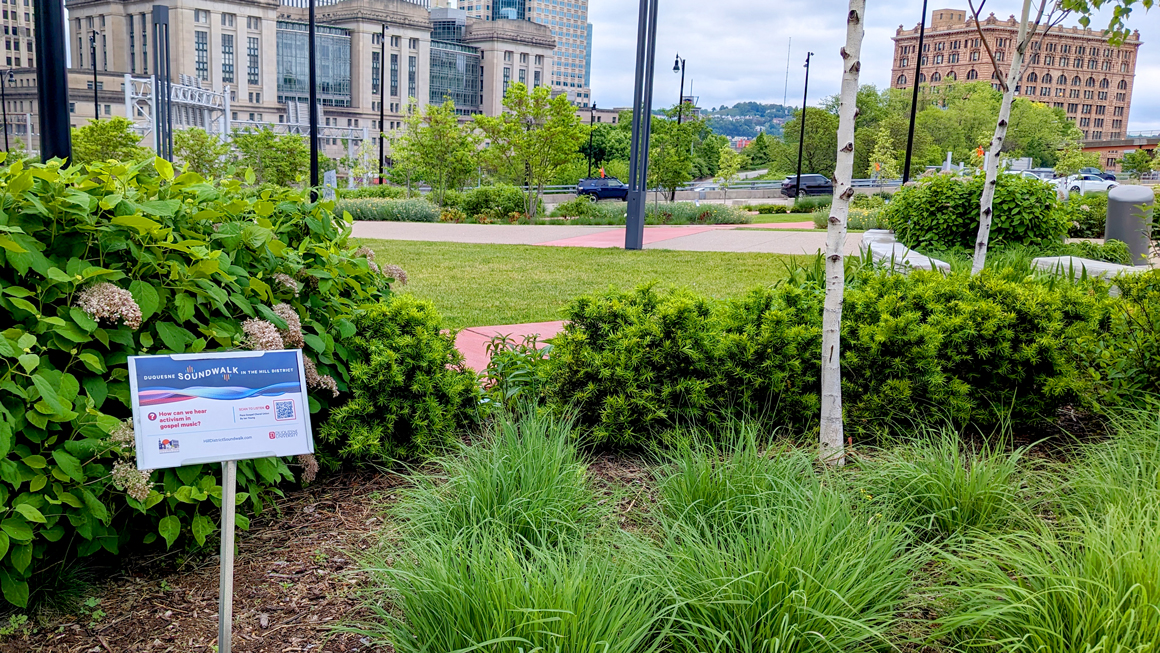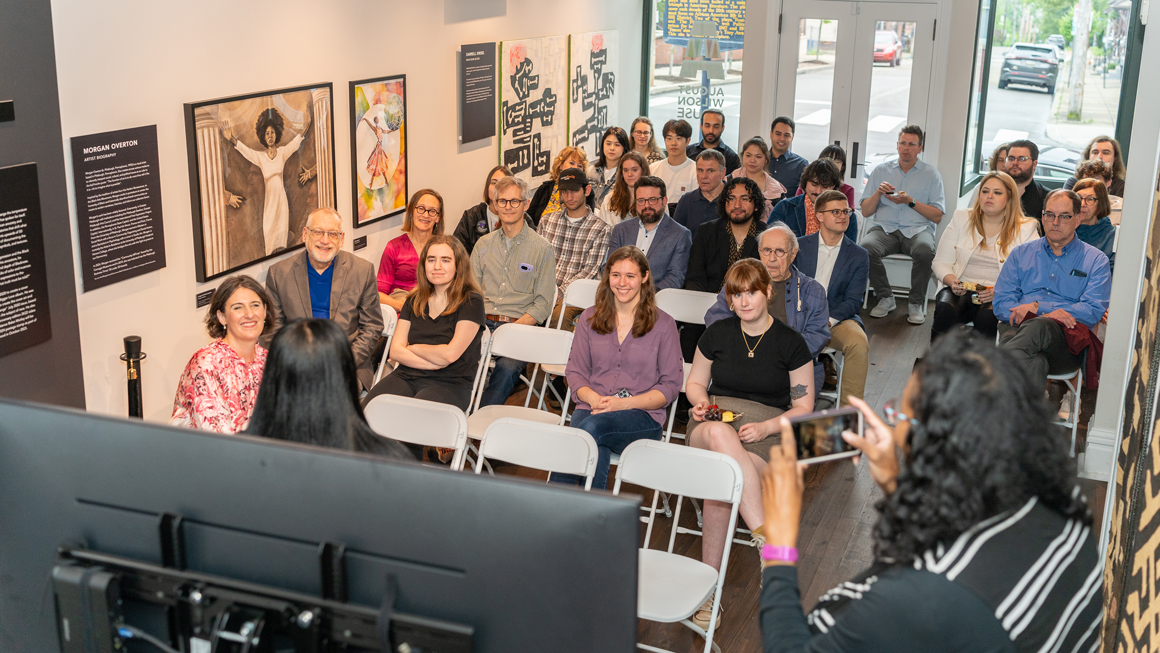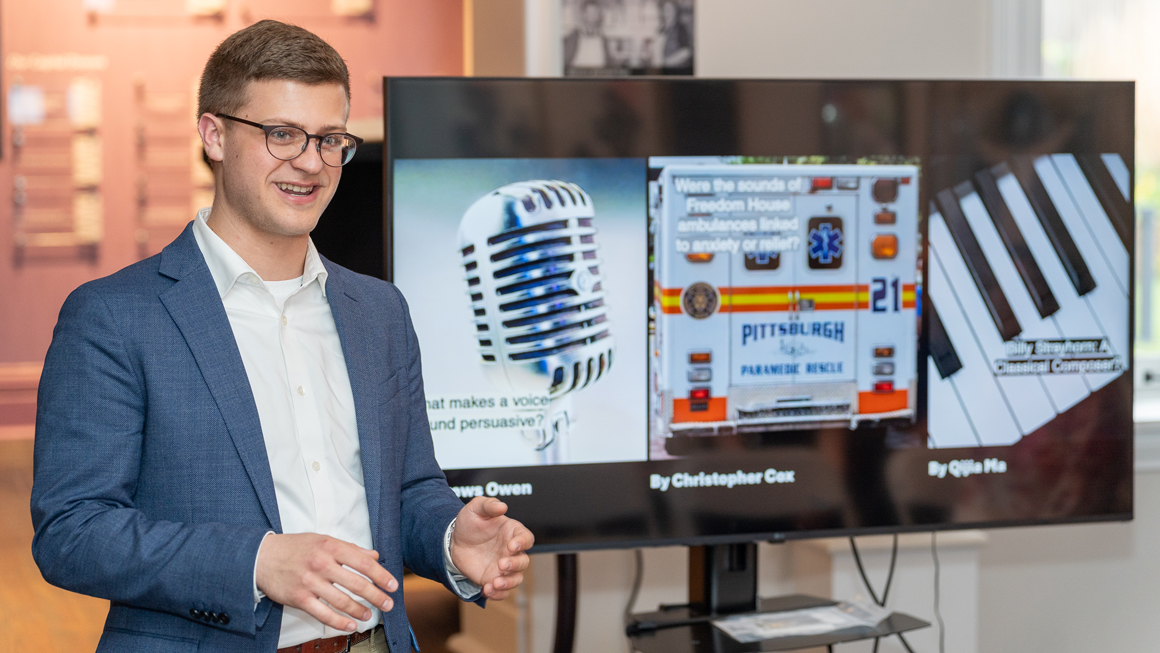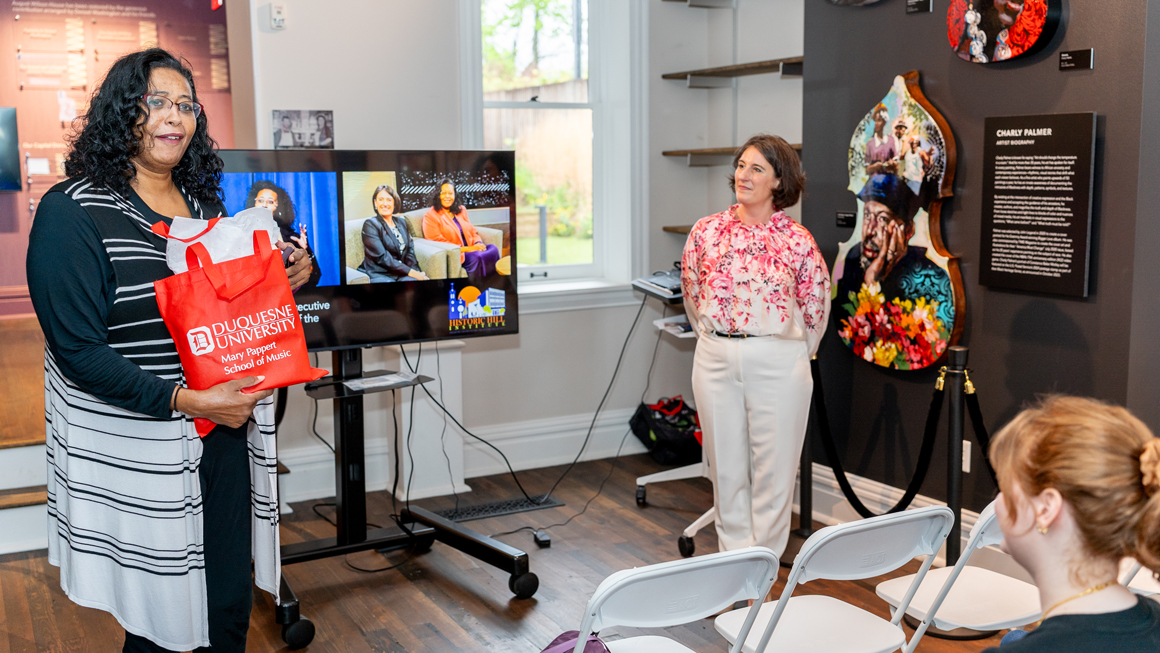When we tour historic spaces, we are often told to pay attention to the things we can see or read. Often the everyday sounds of history are less emphasized or overlooked. The Soundwalk in the Hill District aims to offer visitors a deeper understanding of Pittsburgh’s past, illustrating how all sounds in our environment can reflect social values, community customs, and structures of power at a given point in time.
The Soundwalk in the Hill District was created by fifteen graduate and upper-level undergraduate students from Duquesne’s Mary Pappert School of Music, led by Assistant Professor of Music Nicole Vilkner and in partnership with community experts. It is exhibited in Frankie Mae Pace Park, an elevated public park in that sits between Bedford Avenue, Washington Plaza, and Centre Avenue, from spring 2024 to 2025. The installation focuses on the period when Frankie Mae and Charles Henry Pace settled in Pittsburgh and were active as community leaders and musical entrepreneurs (~1930–1960). During this era, the Hill District’s predominantly African American community witnessed the achievements of local leaders and institutions. By the 1930s, the Pittsburgh Courier became the most widely-circulated African American newspaper in the nation. The Crawford Grill became an acclaimed jazz landmark as it featured legends like Miles Davis, John Coltrane, and Art Blakey on its stage. Meanwhile, the community also faced adversity and loss as the Lower Hill neighborhood was leveled by urban redevelopers, propelling Frankie Mae Pace to lead protests and to voice concerns that were finally heard by public officials. This project celebrates the sounds of the Hill District, offering sonic glimpses of everyday life while also recreating some special historic moments.
Students on the Soundwalk team worked intensely during the Spring of 2024 to research the history of the Hill District during the mid-20th century. They first visited Frankie Mae Pace Park in the cold month of January to experience the park and to learn about the leader it commemorates.
Terri Baltimore, Activities Coordinator at Macedonia FACE Active for Life Center in the Hill District and former Director of Community Engagement for the Hill House Association, guided students on a bus tour to visit important landmarks in the Hill in February. The tour included stops at Freedom Corner, the August Wilson House, the Crawford Grill, and the store front of Pace Music Store. Ms. Baltimore shared personal anecdotes, as well as pictures and letters from her scrapbook of Hill history. This tour oriented the class to the geography and scope of history in the Hill.
Dr. Kimberly Ellis, founder of the Historic Hill Institute and niece of iconic Pittsburgh playwright August Wilson, led the class in a study of Wilson’s play The Piano Lesson in March. Her anecdotes about Wilson’s life offered insight into the perspectives of artists and thinkers in his circle. These ideas were powerful in shaping the way the class was thinking about social matters in the Hill.
In addition, students studied archival records from the Charles Henry Pace and Frankie M. Pace Gospel Music Collection housed at the University of Pittsburgh, thanks to a partnership with Dr. Christopher Lynch, Head Music Librarian at Pitt. Two students even traveled to the archive to do more detailed research.
In the research phase of the class, students continued to work with community partners Ms. Baltimore and Dr. Ellis. They also sought perspectives from a broader circle of experts including Phil Hallen (founder of the Freedom House Ambulance Service), Duquesne jazz faculty Thomas Wendt, retired chief John Moon (founding Freedom House paramedic and first person to intubate in the field), as well as archivists from the Heinz History Center, Center for American Music, and the Carnegie Library.
“Once students got into the mindset that we were reaching out to people and seeking out archival resources, they started to reach out to experts that were relevant to their exhibits,” said Vilkner. “Jesse Thompson talked to Terri Baltimore about her childhood memories of riding on jitneys. Alex Weibel interviewed Duquesne faculty Thomas Wendt about his experiences playing at the Crawford Grill. Christopher Cox worked closely with Phil Hallen to learn about the initiatives and funding campaign he spearheaded that resulted in the founding of Freedom House Ambulance Service. After these interviews, students would share their stories and think about how to incorporate the new information. I could see they had an even higher level of investment in their exhibits because they wanted their partners to be proud of the final product.”
On Saturday, May 4, the Soundwalk project launched to the community. The results of all fifteen students’ work are represented on The Soundwalk in the Hill District website and are also accessible via QR codes printed on signs placed around Frankie Mae Pace park. The signs will be on display until spring 2025.
“Here at the Historic Hill Institute, preserving the built environment as well as the cultural, social, and active history of the Hill District is extremely important,” said Dr. Kimberly Ellis. “Making that history palatable and digestible for the public is a task but we do it with storytelling, displays, oral history and digital history. Making the legacy of a neighborhood a living, breathing and current understanding instead of a bunch of signs and a relic of the past is not only necessary but vital. What the Duquesne University students have done under the leadership and guidance of Dr. Vilkner, myself, and all of the members of the team has contributed to our storytelling in an exciting, innovative, and vibrant way—and that’s how we like to do it! Congratulations and we will see you all at Frankie Pace Park!”
This award-winning project was made possible through grant funding from Duquesne University's Center for Community-Engaged Teaching and Research and the Mary Pappert School of Music. Following on the success of the inaugural Duquesne Soundwalk, both the Soundwalk in the Hill District and the Soundwalk at the Frick have received the John G. Rangos, Sr. Prize.
The Soundwalk in the Hill District has also been covered by TribLive and on KDKA’s Intersections (beginning at 16:20).
News Information


